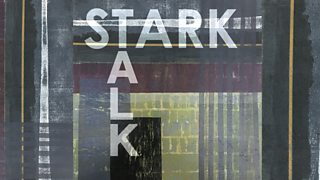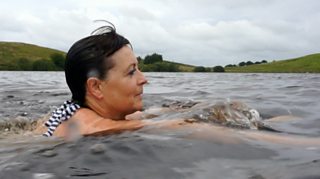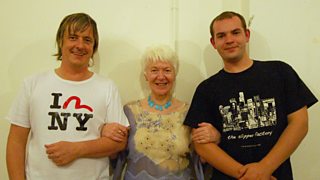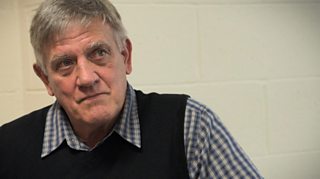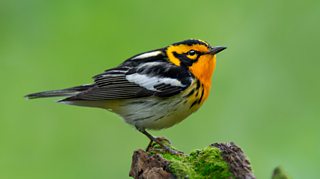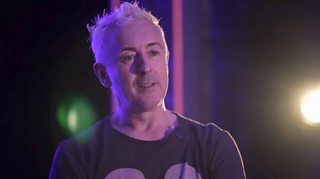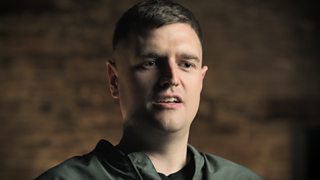Stark Talk: A collection of conversations to pique your curiosity
Edi Stark has interviewed hundreds of prominent personalities over the last twenty years for ÃÛÑ¿´«Ã½ Radio Scotland's Stark Talk, but choosing the final ten interviews for this podcast series was a task which Edi looked upon with enjoyment.
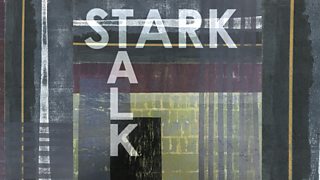
"It has been fascinating to go back through the recordings and re-live so many memorable moments. The archive is a treasure trove of the recent social and cultural history of Scotland and beyond, and it’s a privilege to share it more widely."
Since the flagship ÃÛÑ¿´«Ã½ Radio Scotland series began in 2000, Edi has interviewed a host of prominent guests from varied backgrounds.
Former interviewees include former Prime minister's wife, Cherie Blair and the King and Queen of Scottish cabaret Ian and Janette Tough (AKA The Krankies).
These intimate conversations are always revealing and it's easy to become immersed in these exchanges, as Edi says herself,
"It's exhilarating to create conversation where it's not a social failing to be nosy, the microphone gives licence to be fearlessly curious."
"It was always going to be a difficult task to choose which interview to start with, but it seems an appropriate time to reveal my favourite."
However, in a lifetime of interviewing such legends, is it possible to choose a favourite?
"I’ve been asked many times down the years who has been my favourite person to interview and I’ve always been reluctant to single out one guest.
"But now that I’ve listened back to so many shows to put together these collections, I think it’s an appropriate time to finally reveal that the great Scottish poet Norman MacCaig was my favourite.
"I was so excited at the prospect I could hardly breathe but I settled down enough to conduct an interview which I enjoyed enormously and which I think has stood the test of time.
"He was such a twinkling presence, full of mischief and dry humour, it was impossible not to fall for his charisma and charm. And that’s before he read his poetry."
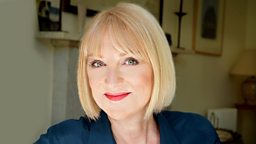
Subscribe to the Podcast
-
![]()
Stark Talk Podcast
Join Edi for the interview series which often treads where others wouldn't dare!
-
![]()
ÃÛÑ¿´«Ã½ Sounds
Browse all podcasts, radio shows and mixes with the ÃÛÑ¿´«Ã½ Sounds App.
Norman MacCaig in five quotes.
When Edi met Norman in June 1993, three years before his death, she was excited to ask about his life and his poetry.
Edi had heard he could be difficult to interview and so she threw in a couple of ice breaker questions, asking if he had had an extravagant side to him to which he replied,
"I spend most of my money on cigarettes and whisky and I enjoy every puff!"
That's when Edi knew they were going to get on with each other just fine.
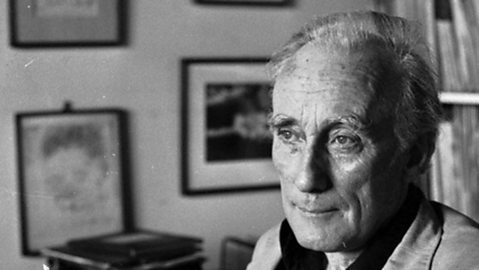
Visiting hour
Norman MacCaig introduces and reads 'Visiting hour'.
"I love music, I like music more than poetry, I think it's the greatest of the arts."
Modest MacCaig reluctantly admitted that he became quite good at the fiddle when he was younger but never played in public, and only for his own enjoyment.
However he gave it up when he began to know far better fiddlers than he, like Aly Bain who he described as his "great buddy" and a "tremendous fiddler".
"I'm sure if there is any poetry in me it comes from her...I'm certain of it."
When his mother came to Edinburgh from Scalpay, Harris at the age of sixteen she was unable to read or write.
Although she may have been considered by many as illiterate, she used the English language with startling effect.
MacCaig states, in all his days "He never met anybody who used images and metaphors in ordinary conversation, as she did."
"At least half of my closest friends come from there."
MacCaig described the people of Lochinver as "being able to bring out niceness in people, that they didn't even know that they had"
He cites at least half of his closest friends as coming from Assynt; gamekeepers, shepherds, people who work at the pier and poachers. "They have a nice turn of wit."
"The luckiest thing that happened to me ever, was meeting her and the saddest thing was her death..."
He tells Edi he had one woman in his life - his wife, Isobel who he met at University where he studied The Classics.
Encountering for the first time at the society dance, he described himself as "a hot boy at the jigs" and she as "an extraordinarily good dancer".
The poem "Visiting Hour" was written about Isobel.
-
![]()
The Stark Talk Podcast
This podcast collection will include Edi's 1993 one to one conversation with Norman MacCaig and also interviews with Dr Mo Mowlam, Iain Banks and Iain Hutchinson, the Battle of Britain fighter pilot from Govan amongst others.
Latest features from ÃÛÑ¿´«Ã½ Scotland
-
![]()
'Wild swimming helps me process the grief of losing my son'
The benefits of cold water therapy.
-
![]()
Winter adventures are appealing, but an expert advises caution
Trips in winter require particular knowledge and skills.
-
![]()
The rescuers: Why volunteers risk their lives in mountain emergencies
Landward meets members of the Cairngorm Mountain Rescue Team.
-
![]()
‘Look for the light’ – practical tips to help you through another winter with SAD
Useful advice and tips to combat low moods at this time of year.
-
![]()
How you could be a binge drinker without even knowing
Binge drinking is classed as fewer units than many people may realise.
-
![]()
How chocolate biscuits and drama classes helped one man leave prison behind
The healing power of creativity.
-
![]()
'When people believe in you, it’s life-changing'
Author Graeme Armstrong revisits the man who helped turn his life around.
-
![]()
The 'breath-taking' display of US birds swept on to British soil
Recent storms have brought rare birds to our shores.
-
![]()
Six things we learned about Alan Cumming on Take the Floor (Spoiler: includes accordions)
The actor spoke to Take the Floor's Gary Innes.
-
![]()
How street gangs trap young men in a dangerous cycle of violence
The almost inescapable pull of life in a gang.
-
![]()
Why stylist Gok Wan believes there's no such thing as bad fashion
The fashion expert says we should stop following rules and do what feels right.
-
![]()
Is sending a CV still the right way to apply for a job?
They've been central to job applications for years, but are they worth it?
